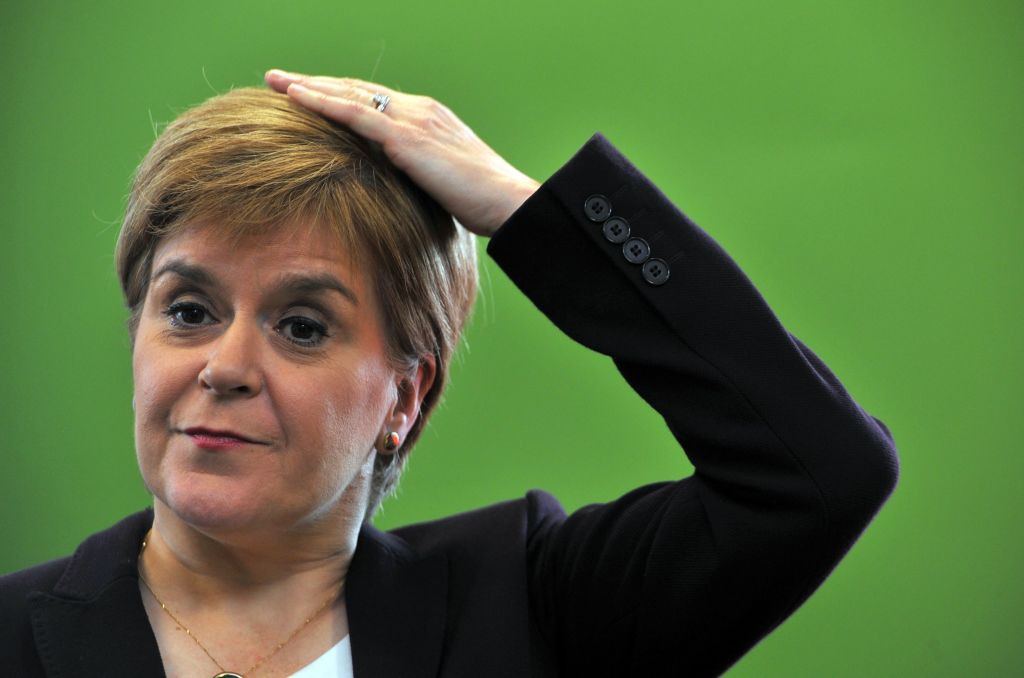Kwarteng’s £45 billion tax cuts will have given Nicola Sturgeon a headache. She has power over income tax and has indicated that she won’t replicate his cuts (especially for the best paid). Which means that Scots could end up paying hundreds of pounds more in income tax next year. Already, there is talk about Scottish tax exiles heading to London (with a particular focus on Edinburgh’s financial service industry.)
The Chartered Institute of Taxation has run the figures. If the 1p cut to the basic rate isn’t passed on in Scotland, anyone earning more than £14,732 will pay more tax than those in the rest of the UK. Those earning £30,000 will pay nearly £200 more each year. But the real difference comes from the biggest taxpayers: the top-rate earners on £150,000. They’d pay over £3,000 more in Scotland. At the extremes, those with a yearly income over one million would pay £54,000 more than their English counterparts.
All told, some 2.4 million workers will be paying more in Scotland than in England while just 276,000 will pay the same amount. The power to set income tax rates and thresholds were devolved five years ago when the UK government delivered its part of its post-referendum ‘vow’. Since then the SNP have used this power to bring in an additional lower band and an extra middle one – the tax burden should be shouldered by the rich they say.
The best paid 1 per cent pay about 28 per cent of all income tax, but under the UK system this doesn’t matter because the money is pooled and divided up by Westminster – with Scots being given higher per-head spending. Under this system, there is no tax competition: London is a capital for the UK and its wealth is divided evenly. Compared with England before the pandemic £125 more per head was spent on health in Scotland, £60 more on schools and £60 more on policing too. Under independence, of course, it would be a different matter. There would be less money to spend.
The SNP likes to counter claims that the party is purely anti growth or anti success by pointing at its 19p starter rate. But that’s only on earnings between £12,571 and £14,732. Kwarteng’s cut to the basic rate applies all the way up to £50,270. This lower band did allow the SNP to argue that half of Scots pay the lowest tax in the UK – that will no longer be the case.
There’s also no sign Sturgeon has any plans to follow suit with similar tax cuts. Responding to the ‘mini’ budget she said the cuts would leave top earners ‘laughing all the way to the bank’. But as independent countries know, such earners also tend to laugh all the way to the exchequer: the best paid 1 per cent stump up 28 per cent of income tax collected.
This makes all countries strikingly dependent on the money of highly mobile people who can nowadays work (and declare tax) pretty much anywhere. If the best paid Scots now start declaring tax in England, Scotland’s tax base could greatly suffer. As it stands even now, those ‘super wealthy’ higher and additional rate payers make up just 15 per cent of Scotland’s population but account for some 60 per cent of its income tax take.
Fundamentally, there’s a contradiction at the heart of SNP tax policy. They appeal to voters through a sense of redistributive justice: tax the rich to pay for better public services. But many key SNP policies, such as free university tuition, free prescriptions, and the baby box, are simple subsidies for middle earners rather than aimed at the poor.
But at the same time the SNP base their future hopes for independence around high tax countries in Northern Europe. Those countries put the tax burden on middle earners, the core of the SNP voter base, not exclusively by taxing the rich. The OECD measures the ‘tax wedge’: the tax on a worker on average income as a percentage of total labour costs. In the UK it’s already relatively low at just under a third – in France and Germany it’s nearly 50 per cent.
If the best paid pay 42 per cent tax in England and 48 per cent income tax in Scotland (45p tax, plus 2 per cent NI, plus Sturgeon’s ‘penny for Scotland’) then what might happen? When Halifax and Bank of Scotland merged, they chose Edinburgh for their head office – would such a decision be likely under this new tax regime? Would the actor Brian Cox still be moving back to Dundee as he recently promised? Or might he, on reflection, just hang on to his north London pad and declare tax there?
Nicola Sturgeon talks a lot about a new referendum but has yet to lay out the new economic case. Unsurprisingly so. Thanks to Kwarteng’s budget, her job has just become a whole lot harder.







Comments